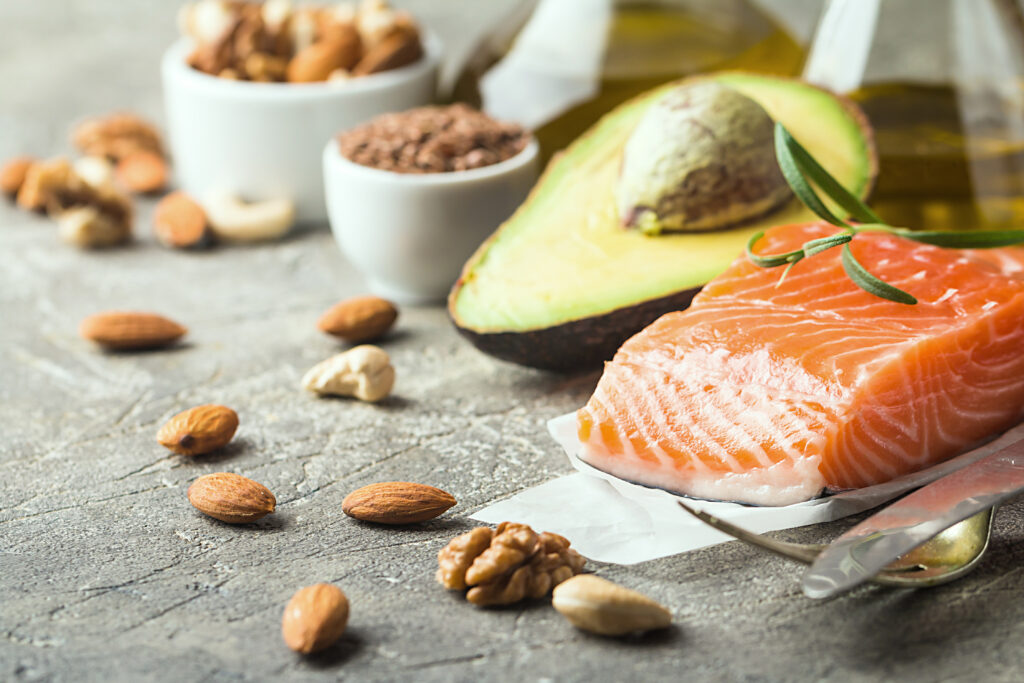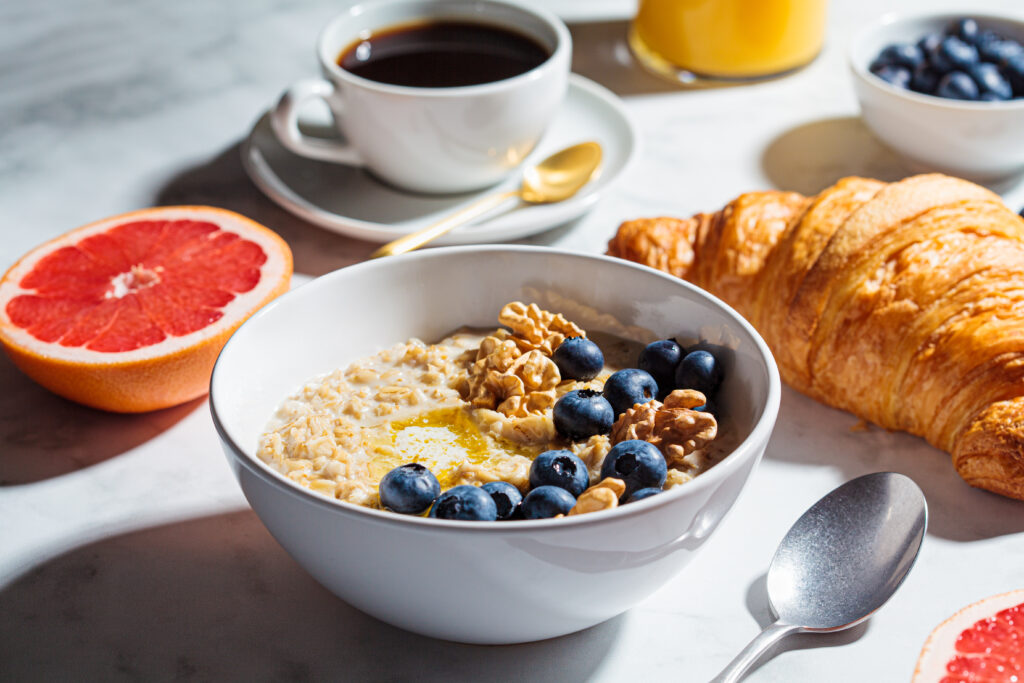The Healing Powers of Nutritious Food for Mental Wellness
It is no secret that what we eat affects our physical health. But did you know that the food we put into our bodies can also have an impact on our mental health? Scientists have proven that eating nutritious foods improves mental health and well-being, from reducing the risk of depression to increasing focus and productivity.
An Introduction to the Role of Nutrition in Mental Health

When we think about improving our mental health, we often focus on traditional approaches such as therapy or medication.
However, what we put into our bodies can have a significant impact on our mental well-being too. In fact, our gut is often referred to as our “second brain” because of the complex connections between our digestive system and mental health.
Good nutrition provides the essential nutrients our bodies need to function properly, including our brains. The foods we eat can affect our mood, energy levels, and cognitive function, which are all key components of good mental health.
Studies have shown that individuals who consume a diet high in fruits, vegetables, whole grains, lean protein, and healthy fats are more likely to experience improved mental health outcomes. On the other hand, those who consume a diet high in processed foods, added sugars and unhealthy fats are more likely to experience mental health issues such as depression and anxiety.
This is why it’s so important to pay attention to the food we’re putting into our bodies and make mindful choices that support our mental well-being. By using food as medicine for our minds and bodies, we can take an active role in improving our mental health and overall quality of life.
The benefits of nutritious food for mental wellness

It’s no secret that our food choices impact our physical health. But did you know that what you eat also plays a major role in your mental health and well-being?
Research has shown that a healthy and balanced diet, rich in nutrients, can help improve mood, reduce symptoms of depression and anxiety, and boost cognitive function.
Here are some of the ways that nutritious food can benefit your mental wellness:
- Helps regulate neurotransmitters. The neurotransmitters in our brain are responsible for regulating our mood, sleep, and appetite. Getting enough omega-3 fatty acids, B vitamins, and amino acids can help balance these neurotransmitters.
- Reduces inflammation. Chronic inflammation has been linked to a variety of mental health disorders, including depression and anxiety. Eating anti-inflammatory foods like fruits, vegetables, and whole grains can help reduce inflammation and improve mood.
- Boosts brain function. The brain needs a variety of nutrients to function properly, including vitamins, minerals, and antioxidants. Eating a diet rich in these nutrients can help improve cognitive function, memory, and focus.
- Provides energy. Eating a balanced diet with complex carbohydrates, healthy fats, and protein can help provide sustained energy throughout the day. This can help reduce fatigue and improve overall mood and motivation.
- Improves gut health. The gut-brain connection is real, and a healthy gut is essential for good mental health. Eating a diet rich in fiber, probiotics, and prebiotics can help improve gut health and reduce symptoms of anxiety and depression.
Overall, choosing nutritious foods over processed and unhealthy options can have a significant impact on your mental wellness. By eating well, you can improve your mood, cognition, and mental health. So think about your mental health before eating that sweet snack or processed dinner.
The top 10 nutritious foods for mental wellness

- Dark Leafy Greens. Kale, spinach, collard greens, and other dark leafy greens are packed with essential vitamins and minerals, including folate, which has been shown to improve mood and decrease depression.
- Salmon. Rich in omega-3 fatty acids, salmon has been shown to reduce inflammation, lower anxiety levels, and improve cognitive function.
- Berries. Berries like blueberries, strawberries, and raspberries are rich in antioxidants, which protect against oxidative stress and may improve mood and cognitive function.
- Walnuts. Walnuts are a great source of healthy fats and vitamin E, which have been linked to improved brain function and reduced inflammation.
- Whole Grains. Whole grains like brown rice, quinoa, and whole wheat bread are rich in fiber, which promotes a healthy gut microbiome and may improve mental health.
- Avocado. Avocado is packed with healthy fats, vitamin K, and B vitamins, which may help improve cognitive function and reduce anxiety.
- Fermented Foods. Fermented foods like kimchi, sauerkraut, and kefir contain probiotics that support a healthy gut microbiome, which is linked to improved mental health.
- Dark Chocolate. Dark chocolate is high in antioxidants and contains a small amount of caffeine and theobromine, which may improve mood and cognitive function.
- Turmeric. Turmeric is a spice that contains curcumin, which has been shown to reduce inflammation and may improve symptoms of depression.
- Eggs. Eggs are a great source of protein, B vitamins, and choline, which may improve cognitive function and reduce inflammation.
Incorporating these foods into your diet can be a simple yet powerful way to support your mental wellness. Whether you’re struggling with anxiety or depression, or simply want to boost your mood and cognitive function, these nutrient-dense foods can be a powerful tool for healing and nourishing your mind and body.
Recipes for mental wellness

Incorporating nutritious food into your diet doesn’t have to be boring or bland. In fact, delicious meals can be incredibly nourishing for both your body and mind.
Here are a few recipes to help you boost your mental wellness:
Salmon with Quinoa Salad
Salmon is rich in omega-3 fatty acids, which can help reduce symptoms of depression and anxiety. Quinoa is also a great source of protein and fiber. To make this dish, simply grill a salmon fillet and serve it with a quinoa salad mixed with diced tomatoes, cucumber, and lemon juice.
Sweet Potato and Kale Soup
Sweet potatoes are high in vitamin B6, which plays a key role in brain function. Kale is rich in antioxidants and other important nutrients for mental health. To make this soup, sauté chopped onion and garlic in olive oil, then add diced sweet potato, kale, and vegetable broth. Simmer until the sweet potato is soft, then blend until smooth.
Oatmeal with Berries
Oats are a great source of complex carbohydrates, which can help stabilize your mood and energy levels. Berries are high in antioxidants, which can protect your brain from oxidative stress. To make this breakfast dish, simply cook oats with water or milk, then top with your favorite berries.
Lentil and Spinach Curry
Lentils are a good source of protein and fiber, which can help balance your blood sugar levels and improve your mood. Spinach is also rich in important vitamins and minerals for mental wellness. To make this curry, sauté chopped onion, garlic, and ginger in olive oil, then add cooked lentils, spinach, coconut milk, and curry powder. Serve with brown rice.
These are just a few examples of how you can use food as medicine for your mind and body. Experiment with different ingredients and recipes to find what works best for you. Remember to focus on whole, nutrient-dense foods that can nourish your brain and support your mental wellness.
Ready to sell your property? Give us a call today and learn more about our professional photography services and marketing that can boost your property listing!
Plus, explore our virtual assistant coaching program to level up your business. Don’t forget to tune into our new podcast for even more valuable insights!
